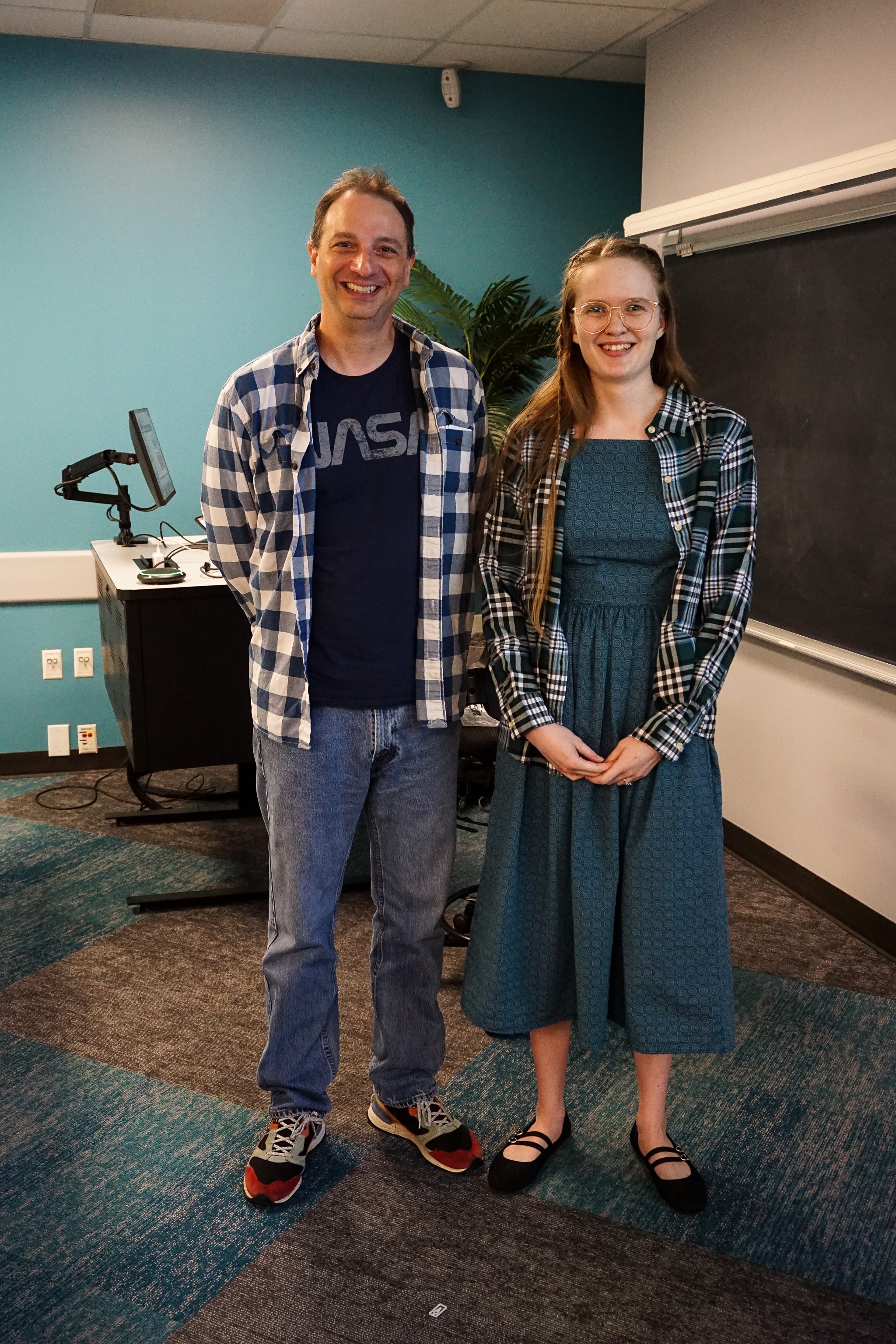Alumni Spotlight: Dr. Casey Stowers (BSIE '19)
Dr. Casey Stowers recently achieved a career-defining milestone: earning her PhD from the University of Texas at Austin in Computational Science, Engineering, and Mathematics. Just moments before sitting down for a Teams meeting to do this spotlight interview, she had submitted her dissertation, officially completing a remarkable journey that began at Purdue's Edwardson School of Industrial Engineering.
Since graduating from Purdue University in December 2019, Dr. Stowers has been at the forefront of cancer research, developing sophisticated computational models that predict how solid tumors respond to chemotherapy. Working in UT Austin's prestigious Center for Computational Oncology with advisor Dr. Thomas Yankeelov, she has tackled one of medicine's most challenging problems: personalizing cancer treatment through predictive modeling.
"The broad concept for my dissertation was figuring out ways to integrate mechanism-based mathematical modeling with data-driven approaches, and use those to predict breast cancer response to chemotherapy," Dr. Stowers explained.
Her research encompasses three critical areas: pre-treatment prediction models that could spare patients from ineffective treatments, computational efficiency improvements that make advanced modeling more accessible to clinicians, and advanced tissue mechanics modeling that provides insights into therapy effectiveness.
Beyond breast cancer, she has contributed to research on cervical and prostate cancers, demonstrating the modeling approach's versatility across tumor types.
How does an industrial engineering major become a leader in computational oncology? For Dr. Stowers, it began with embracing IE's problem-solving versatility.
"I saw Industrial Engineering as broadly applicable," she said, noting that her father's PhD in IE also inspired her path. Her undergraduate experience built the computational foundation essential to her current work. "I was able to take graduate-level courses like nonlinear optimization and natural computing," she recalled. "That showed me we were building skills that could apply in many different ways."
Strategic experiences shaped her path, such as internships at Lawrence Livermore National Laboratory, where Stowers discovered a passion for imaging data. Meanwhile, undergraduate research in Purdue’s Mechanical Engineering department, specifically with Dr. Adrian Buganza-Tepole on reconstructive surgery modeling, introduced her to the medical domain.
Dr. Stowers' Purdue experience extended beyond academics. She was active in the Board Games Club and the Boiler Green Initiative, reflecting her commitment to making a positive impact.
Her coursework particularly valued collaboration. "In later-year classes, we got to pick our groups and base some projects on our interests," she said. One memorable project analyzed the efficiency of tacking up a horse, complete with saddle, thanks to an equestrian teammate. "I learned a lot about horses," she laughed.
Her capstone project with Northrop Grumman provided crucial real-world experience. "We visited their facility, and it felt very tangible," she remembered.
Dr. Stowers credits her Industrial Engineering foundation as essential to her current success: "IE's multidisciplinary nature was so helpful. I work with clinicians and use real patient data. Communicating technical results to non-technical audiences is something IE prepared me well for."
This skill proves invaluable in her current role, where she must translate complex mathematical models into actionable insights for medical professionals.
Dr. Stowers exemplifies how Industrial Engineering education can address society's most pressing challenges. Her journey from analyzing process efficiency to predicting cancer treatment outcomes demonstrates IE's systems thinking in action.
Her work represents the future of personalized medicine, where engineering precision meets medical compassion to improve patient care—a testament to the problem-solving foundation she developed at Purdue.



